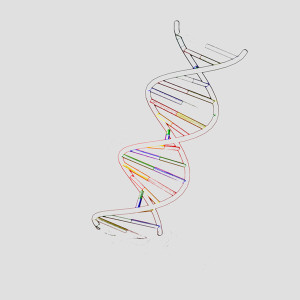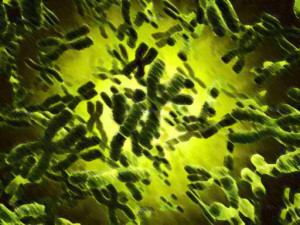Since the dawn of time, human beings have been searching for the Fountain of Youth. Explorers left Renaissance Europe in search of a magical portal that granted eternal life; however, instead of finding the Fountain of Youth, Ponce de Leon discovered the Caribbean Islands, Puerto Rico, and Florida.
Discover the secret to eternal youth – telomeres! These tiny structures at the ends of our chromosomes have been stirring up a storm in the scientific community. Could these be the key to stopping the aging process? Recent studies suggest that longer telomeres are associated with better health outcomes and a longer lifespan. But what exactly are telomeres and how do they work? Join us on a journey into the world of microscopic genetics and uncover the truth behind the hype.
Contents
What Are Telomeres?
Telomeres are sequences of DNA found at the ends of chromosomes. These protein strands have been likened to the plastic tips on the ends of shoelaces, which protect the laces from shredding or fraying. The same can be said for telomeres.
They protect the chromosome strands by adding a layer of protection at the end of the strand to prevent the genetic material from becoming broken or damaged during division and reproduction. Thus, they are thought of as disposable buffers, which allow the chromosomes to divide without damage.
Telomere (genome.gov) https://www.genome.gov/genetics-glossary/Telomere
What Does Telomerase Have To Do With Aging?
Recent studies within the field of genetics have uncovered a relationship between telomeres and aging. Telomeres are specialized structures found at the end of chromosomes, consisting of repeating DNA sequences and proteins that serve to protect the chromosome from damage. The length of telomeres can be seen as an indicator of age since each time a cell divides, its telomeres become shorter, eventually reaching a critical minimum length known as senescence, at which point the cell dies.
The gradual shortening of telomeres is thought to represent a form of programmed cellular aging; however, it is difficult to determine whether shorter telomere lengths are an effect or cause of aging. Geneticist Richard Cawthon discovered that individuals with shorter average telomere lengths had significantly lower life expectancies compared to those with longer lengths.
These findings suggested that certain lifestyle decisions could influence our rate of aging. Subsequent research has demonstrated that factors such as cigarette smoking, obesity, or even stress can result in faster telomere shortening, resulting in premature cellular aging and possibly even earlier death!
https://www.newscientist.com/article/dn3337-shorter-telomeres-mean-shorter-life/
On the flip side, however, some research points to an enzyme called telomerase which can actually slow down or stop this process altogether. Telomerase works by adding additional nucleotides to the end of the chromosomes thereby lengthening the lifespan of cells and decreasing the rate at which they die off. This suggests that manipulating levels of telomerase within our bodies might one day be used to prevent or reverse age-related diseases!
https://learn.genetics.utah.edu/content/basics/telomeres/
Are Short Telomeres Linked to Increased Risk of Cancer? Uncovering the New Findings from a 20+ Year Study
Telomeres are crucial components of our DNA that become shorter with age, and their length has been linked to a range of diseases, including cancer. A new study conducted in 2023 has shed light on the connection between telomeres and cancer, specifically focusing on the immune system’s role in cancer risk.
The study, spanning over 20 years and involving over 200 people with premature aging syndromes, found that cancer risk was not primarily linked to chromosomal instability, but rather to the immune system’s ability to detect and eliminate cancer cells. This finding has important implications for cancer screening and treatment, especially among individuals with short telomere syndromes.
Squamous cancers, which are cancers that arise from the squamous cells that make up the skin and other tissues, have long been associated with the immune system. However, the study found that participants with compromised immune systems had a lower than expected incidence of squamous cancers. This finding suggests that the immune system may play a more complex role in squamous cancer development than previously thought.
The study’s findings highlight the importance of maintaining a healthy immune system, as well as the potential for immune-based therapies in cancer treatment. By understanding the connection between telomeres, the immune system, and cancer, researchers may be able to develop more targeted and effective cancer treatments that take into account individual variations in telomere length and immune function.
Overall, the new study represents an important step forward in our understanding of the complex interplay between telomeres, the immune system, and cancer. Ongoing research in this area will undoubtedly lead to new insights and breakthroughs in cancer prevention and treatment, bringing hope to millions of people impacted by this devastating disease.
Reference:
https://pubmed.ncbi.nlm.nih.gov/37037617/
What Do Telomeres Mean For Anti-Aging?
There is hope that harnessing the power of the telomeres and introducing them to healthy human cells would lead them to immortality, as well. If it made cancer cells immortal, it makes sense to draw the conclusion that human cells could also be maintained indefinitely through telomeres.
There is some hope that telomeres could also prevent normal, healthy cells from aging altogether, thereby truly finding the fountain of youth deep within the body. Telomerase has shown to keep human cells dividing far past their normal limit within the confines of a controlled laboratory environment. Does this mean they can be introduced to healthy humans to keep their cells alive and functioning well for longer?
What Causes Aging?
The main cause of aging is known as oxidative stress. This is why, in recent years, there has been such commotion surrounding foods and products that are known as antioxidants and superfoods. These foods and products have shown to reduce the amount of oxidative stress on the cells, and thereby are known to slow down the signs of aging.
Oxidative stress essentially causes damage to DNA, but antioxidants are known to protect this damage from occurring. Telomeres are considered the ultimate antioxidant in that longer chains of telomeres protect the DNA strands for longer periods of time, leaving chromosomes and cells intact for far longer than people with shorter telomere strands.
The Consensus:
Telomeres are both an anti-aging miracle AND a scientific breakthrough. The discovery of these strands of genetic material has led to significant breakthroughs in anti-aging research, and may have, inadvertently, led to a cure for cancer. Only time will tell whether the discovery of these telomeres will help increase the human lifespan from an average age of 76 to 100 years or beyond.


Leave a Reply